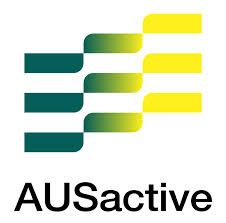Recalibrating After Setbacks: Why Your Fitness Strategy Must Shift With You
If you're someone who’s ever started the year—or the week—thinking, "This is it. This is when I finally get fit, strong, and on top of my health"... only to have it unravel within days or weeks, you’re not alone.

This isn’t a motivation problem. It’s not a character flaw. And it’s definitely not because you “don’t want it bad enough.” At Recalibrate, we work with people over 40 who’ve faced real setbacks—injury, chronic pain, relentless schedules, or mental burnout—and are ready to try something different.
Why Good Plans Often Fail
The traditional fitness model is linear: set a goal, make a plan, execute it. But real life isn’t linear. Life throws curveballs—injuries flare, kids get sick, work projects pile up, or your energy tanks midweek for no apparent reason. If your plan doesn’t flex with your life, it fails. Research from the American College of Sports Medicine (ACSM, 2023) supports this: individualized, adaptable training programs significantly improve adherence and outcomes compared to rigid protocols
Real Clients, Real Setbacks Resolved
-Benjamin, Senior Writer:
"When I first met Gary and the team at Recalibrate, I was recovering from broken bones and more than a little tentative about returning to exercise. I was in constant pain and my posture was quite honestly hard to look at. Gary took the time to not only build up my physicality and with it, my confidence but also my wellness outside of the gym. He's a constant source of lightbulb moments, connecting dots and finding solutions to those everyday issues you probably learned to accept. But with Gaz, you'll soon learn that you don't have to. All I can say is, go and see him for one session. He'll remind you how fun it is to move."
- anu, shopper development manager:
"Gary has trained me as a boot camp instructor and has also been a personal trainer. I cannot recommend Gary highly enough as a fitness coach who's primary interest lies helping his clients achieve their goals. Over the years, I went from joining gyms, losing interest, then to personal trainers who did not listen to the fact that I had a back injury...and then had the good luck of meeting Gary.
Total honesty, total integrity and now a great friend. If you are looking for a trainer who will get you where it is you want to go, I will be the first to recommend Gary."

1. Assess your current load
2. On a scale of 1–10, how physically and mentally taxed are you?
3. Have a Plan B (and C)
4. If your “ideal workout” doesn’t happen, what’s your 10-minute minimum version?
5. Start tracking your readiness
6. Monitor HRV (heart rate variability), sleep quality, or even mood to guide training intensity
7. Shift your success metric
8. Instead of hitting workouts, measure consistency of showing up in any form each week
FINAL THOUGHT
Getting fit isn’t about brute force—it’s about alignment.
When your strategy adapts to your life rather than competing with it, you gain momentum that lasts.
Disclaimer: This blog is for educational purposes only and does not constitute medical advice. Always consult a health professional before making changes to your training or recovery approach
Share this article




